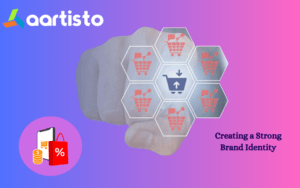
The Ultimate Guide to Ecommerce Marketing
Are you ready to get the most out of your Ecommerce Marketing strategy? If so, also this is the companion for you! We ’ve collected the ultimate collection of information and coffers to help you produce, apply, and measure a successful Ecommerce Marketing plan. From understanding your target followership to creating targeted content and optimizing your website for transformations, this companion has everything you need to maximize the success of your Ecommerce Marketing sweats.
1. What’s Ecommerce Marketing?

Ecommerce marketing is a term used to describe the process of promoting products or services through online channels to drive deals and profit. Basically, ecommerce marketing refers to the strategies that businesses use to attract implicit guests, increase brand mindfulness, and induce deals on their online platforms. One of the crucial aspects of ecommerce marketing is the emphasis on digital marketing ways and tactics.
This can include dispatch marketing, social media marketing, hunt machine optimization( SEO), paid advertising, and more. By using these digital channels effectively, ecommerce businesses can reach a wider followership, engage with their target guests, and make strong connections that lead to deals and long- term fidelity. In addition, ecommerce marketing also requires a strong understanding of your target followership.
By relating who your ideal guests are and what their requirements and preferences are, you can conform your marketing strategies to meet their specific requirements and interests. This includes creating content and messaging that resonates with them, as well as optimizing your website and online shopping experience to make it easy for them to find what they are looking for and make a purchase.
Eventually, ecommerce marketing is each about using the power of online channels to grow your business and reach new heights of success. With the right strategies in place, businesses of all sizes can subsidize on the openings of the digital age and thrive in the largely competitive world of ecommerce.
2. Understanding Your Target followership

One of the crucial rudiments of successful ecommerce marketing is understanding your target followership. Without a clear understanding of who your guests are, you will not be suitable to produce effective marketing juggernauts that reverberate with them. To get started, it’s important to produce client personas that represent the different parts of your target followership. client personas should include demographic information like age, gender, and position, as well as psychographic information like interests, values, and life habits.
Once you have a clear picture of who your guests are, you can start acclimatizing your marketing sweats to their specific requirements and interests. For illustration, if your target followership consists of busy parents with youthful children, you might concentrate your marketing sweats on the convenience and time- saving benefits of your products. It’s also important to keep in mind that your target followership may evolve over time as your business grows and expands.
Regularly reviewing and streamlining your client personas can help insure that your marketing sweats continue to reverberate with your target followership. In addition to client personas, there are other tools and strategies that can help you more understand your target followership. Conducting request exploration, assaying client data, and soliciting feedback through checks or concentrate groups can all give precious perceptivity into the wants and requirements of your guests. Overall, taking the time to truly understand your target followership is an essential step in creating effective ecommerce marketing juggernauts that drive results.
3. Creating a Strong Brand Identity

When it comes to ecommerce marketing, creating a strong brand identity is pivotal for establishing a connection with your target followership. Your brand identity encompasses the look and sense of your website, social media accounts, packaging, and any other touchpoints guests have with your brand. To start creating your brand identity, it’s important to define your brand’s values, charge, and personality. Ask yourself questions like What does your brand stand for?
What kind of experience do you want your guests to have with your brand? What makes your brand unique? Once you ’ve defined your brand’s identity, it’s time to incorporate it into your visual rudiments. This includes your totem, color scheme, typography, and imagery. Make sure your brand’s visual rudiments are harmonious across all platforms to make brand recognition and familiarity with your followership. In addition to your visual rudiments, your brand identity also includes your messaging and tone of voice. Determine the language and tone that stylish align with your brand’s personality and values.
This will help insure a cohesive brand identity and a strong connection with your target followership. Overall, creating a strong brand identity is an ongoing process that requires harmonious trouble and attention to detail. But it’s an investment that can pay off in the long run, as it helps separate your brand and make trust with your followership.
4. exercising Social Media for Ecommerce Marketing

Social media is an necessary part of our diurnal lives. For ecommerce businesses, social media platforms offer a important tool to connect with implicit guests and promote their products or services. Then are some effective social media strategies that ecommerce businesses can use for marketing
- Choose the Right Platforms Not all social media platforms are created equal, and businesses must understand their target followership’s preferences and geste to decide which platforms to use. Facebook and Instagram are ideal for visual content and reaching a broad followership, while LinkedIn is more suitable for B2B marketing.
- harmonious Branding Ecommerce businesses must maintain harmonious branding across all social media platforms. This includes using the same brand colors, tone, and messaging.
- Engage with guests Social media platforms give an occasion to connect with guests and address their enterprises, queries, and feedback instantly. Businesses must laboriously engage with their followers to make long- term connections and client fidelity.
- Use Influencers Partnering with influencers or brand ministers is an effective way to reach new cult and increase brand mindfulness.
- influence stoner- Generated Content Encouraging guests to partake their gests or filmland using a ingrained hashtag can produce a sense of community and social evidence, eventually boosting deals.
5. enforcing SEO for Ecommerce Success

SEO or hunt machine optimization is an essential strategy for any online business looking to boost its visibility, increase organic business, and ameliorate its online presence. enforcing SEO for your ecommerce business can help you achieve all of these objects and further. To begin with, start by relating the most applicable keywords related to your products or services that your target followership is searching for.
Incorporate these keywords in your website’s metadata, product descriptions, titles, and URLs. Optimizing your website’s structure is also pivotal for successful ecommerce SEO. insure your website has an systematized, easy- to- navigate structure that allows hunt machines to bottleneck and indicator your runners snappily. Optimize your website speed, images, and mobile- benevolence, which are crucial ranking factors for Google. Creating a blog section can also boost your SEO sweats.
It provides an occasion to publish applicable, high- quality content that appeals to both hunt machines and implicit guests. Regularly publishing blog posts can ameliorate your website’s visibility, help establish your authority, and attract organic business. Eventually, insure your website has high- quality, authoritative backlinks from applicable sources. Acquiring these links can ameliorate your website’s sphere authority and visibility in hunt results.
Conclusion :
In moment’s presto- paced and digital world, Ecommerce Marketing is more important than ever ahead. It can help businesses reach a wider followership, induce further profit, and produce a stronger brand identity. To make the most out of your Ecommerce Marketing sweats, it’s essential to understand your target followership, produce a strong brand identity, and use colorful digital marketing strategies, similar as social media and SEO.
By enforcing the strategies outlined in this companion, businesses can optimize their online presence and attract further guests. Still, it’s important to flash back that Ecommerce Marketing isn’t a one- size- fits- all result. Every business is unique, and the marketing strategies that work for one may not work for another.
ALSO READ : What are local links and how to earn them
ALSO READ : Best Paying Jobs In Marine Transportation
